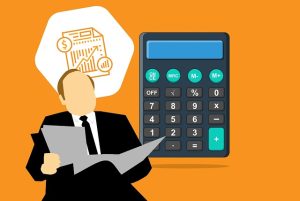Using Golf Swing Thoughts to Improve Trading
 When I first started golfing about 20 years ago I had to make a lot of improvements if I wanted to become good. I read loads of books and then would go to the driving range.
When I first started golfing about 20 years ago I had to make a lot of improvements if I wanted to become good. I read loads of books and then would go to the driving range.
At first I became even worse as I tried to think about the hundreds of things I was supposed to be doing during my golf swing to hit the ball properly. This was part of the learning process, but there was too much information to process when I was actually making the swing.
I eventually narrowed golf to one thing – “swing thoughts.” Swing thoughts are 1 or 2, and only 1 or 2 things, you think about just before or during swing. My swing thoughts change all the time, based on how I am hitting the ball, but they always come from a core group of about 6 or 7 ideas that keep me focused on a solid golf swing (at this point I understood the basics of a good golf swing, just like a trader who has put in the time to develop or learn a good strategy).
One day I might need to keep reminding myself about getting a full turn if I am bit stiff, and another day I may remind myself to keep my “levels” (not dropping and rising during the swing).
The swing thoughts keep me focused on what I need to do when I am struggling, for whatever reason, to do it.
It definitely helped my golf game only focusing on one or two things (preferably one) each time I take a swing. So as a logical extension it makes sense to have some “trading thoughts.”
Basically we each know we have certain tendencies that get us into trouble. In forex I have a tendency to overtrade. So while I am monitoring my forex charts looking for trades I only think about one thing “Stick to the plan!”
By continually bringing my attention back to that simple thought I am constantly reminded that I can only take trades that match my strategy criteria. Any trade I take that I don’t have a pre-established strategy for is just a random gamble and to be avoided.
Don’t ask me why, but when I trade futures I have a tendency to be a bit more timid, not always taking the trades I should (the opposite tendency I have when I trade forex). Maybe it’s because I haven’t traded futures for as long, or as much, as I have traded forex; whatever the reason, having a trading thought helps me take the trades I am supposed to.
Since my approach to trading futures is slightly more subjective than my forex approach, I have a couple of thoughts, used at different times, which have various meanings attached to them.
Before a trade, or while I am waiting/watching, I only think about “Environment.” That word tells me to focus on the market environment, for example what is the trend direction? Big or little movement? Are my normal stops and targets adequate for the current volatility?
Basically this helps me determine in which direction I should trade, and whether it is high probability or not.
Once I have decided, if the environment is favorable for trading I think “Favorably Environment” which gives me the confidence to pull the trigger if a trade setup occurs.
If I determine the environment is unfavorable for trading my strategy, then I continually remind myself “Unfavorable Environment.” This keeps me out of trades I shouldn’t be in. It is a constant process of reassessing whether the environment is favorable or unfavorable, but it is always one or the other; I constantly remind myself which it is.
Similar to the forex example, this method keeps me on track and helps me stick to my strategy.
Final Word
Isolate some of your general problems in trading, and then try to come up with a very short and concise statement which helps you focus on what you need to do to overcome that problem. Use affirmative statements which tell you what to you do, as opposed to telling you what not do to. For example, “Stick to the plan!” is much more affirmative and will likely produce better results than “Don’t deviate from the plan!” The latter has a negative connotation.
Work on bringing that statement/thought to the forefront of your mind when the pressure gets cranked up. This will help push away all the other conflicting voices in your head telling you to make a trade you shouldn’t, or to not take a trade you should.



